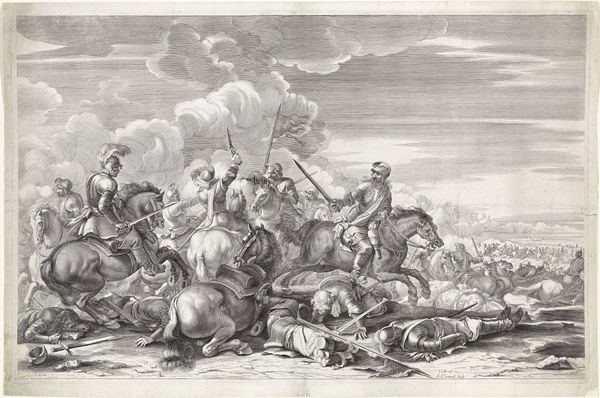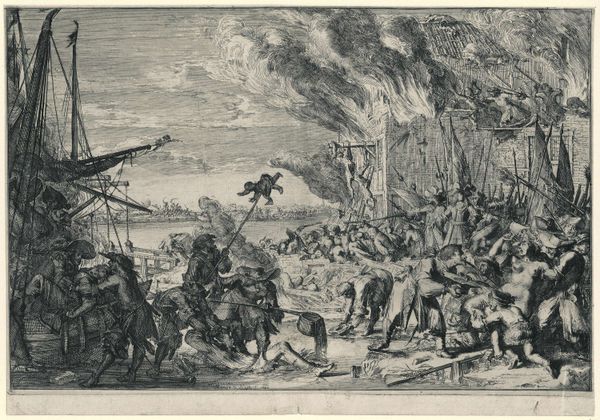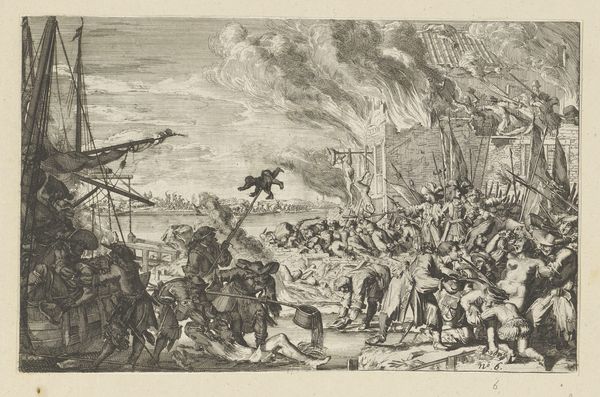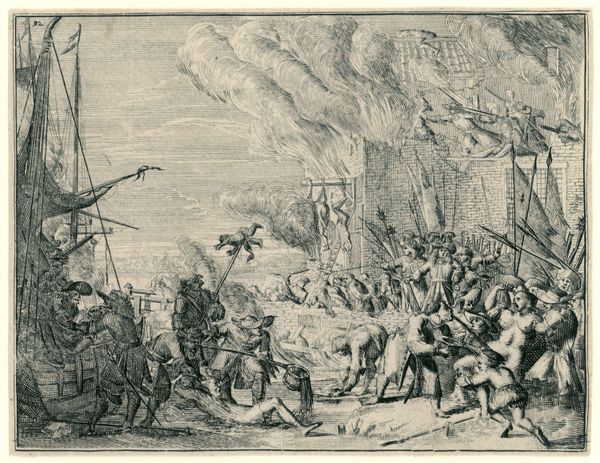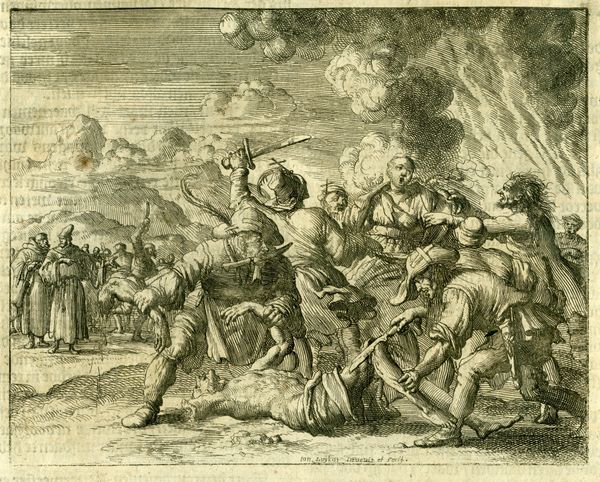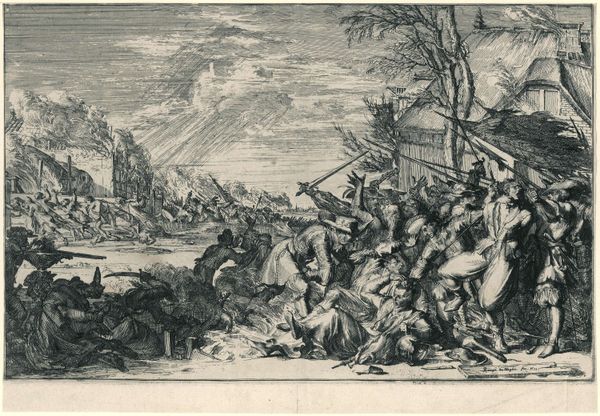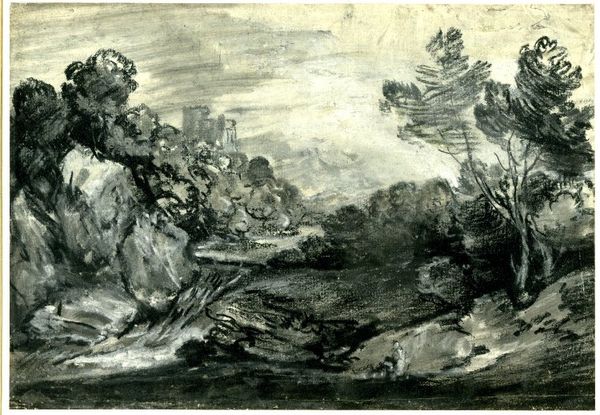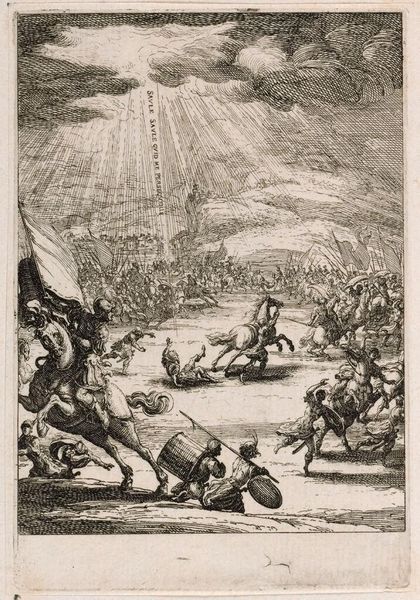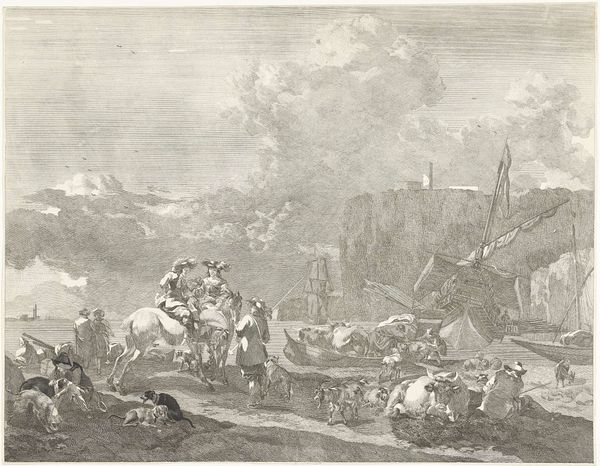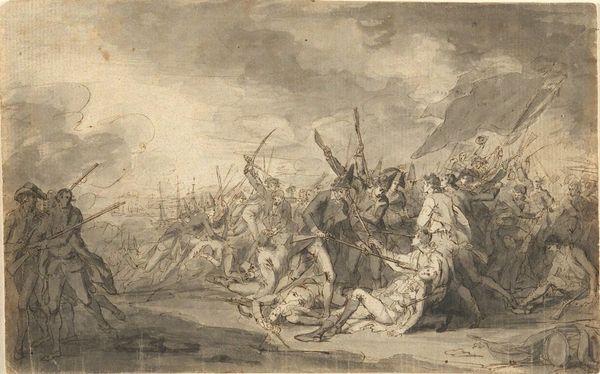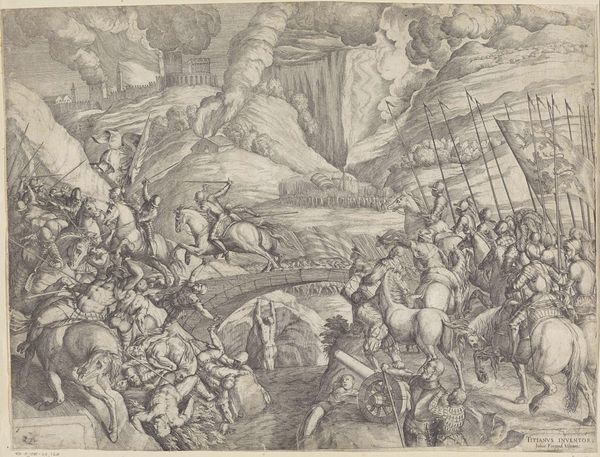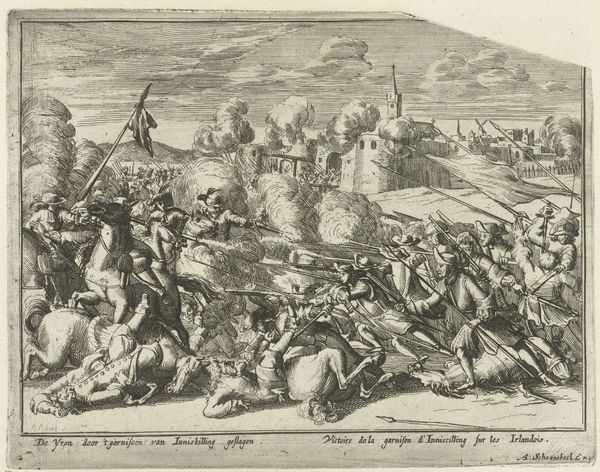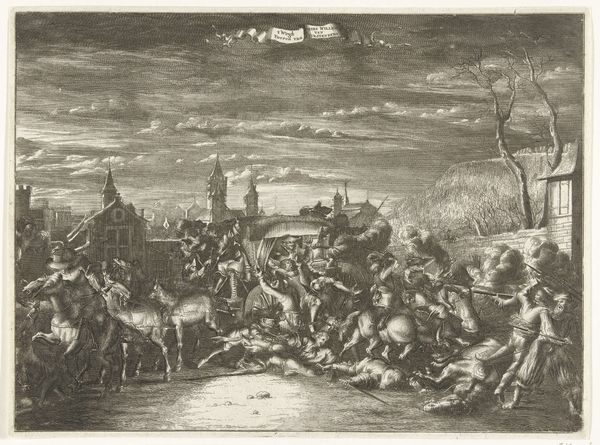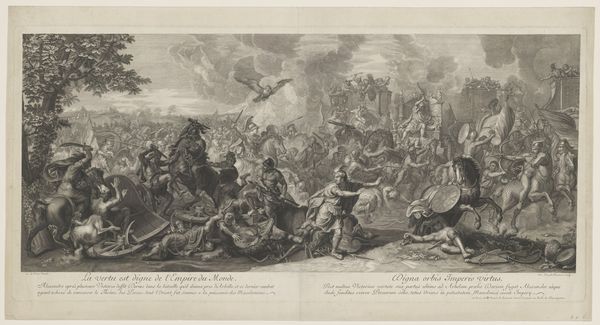
print, etching, engraving
#
narrative-art
#
baroque
#
dutch-golden-age
# print
#
etching
#
genre-painting
#
history-painting
#
engraving
#
realism
Dimensions: height 182 mm, width 303 mm
Copyright: Rijks Museum: Open Domain
This print, Wreedheden in een dorp, was made in 1672 by an anonymous artist. It's an etching, made by incising lines into a metal plate, applying ink, and then running it through a press. The relatively low cost of this process meant that prints like these could circulate widely, shaping public opinion. Here, the stark contrast between light and shadow conveys the chaos and violence of the scene. Look closely, and you can see the fine lines that create texture and depth, the cross-hatching that builds up the darker areas. This wasn't just about artistic skill, though. It was also about labor. The etcher had to meticulously carve each line, and every impression required manual effort. Consider the social context. The print depicts atrocities during wartime. By making this horror reproducible, the printmaker allowed the image to act as propaganda, stirring up feelings, and shaping collective memory. It brings up important questions about the relationship between art, politics, and the mass production of images.
Comments
No comments
Be the first to comment and join the conversation on the ultimate creative platform.
